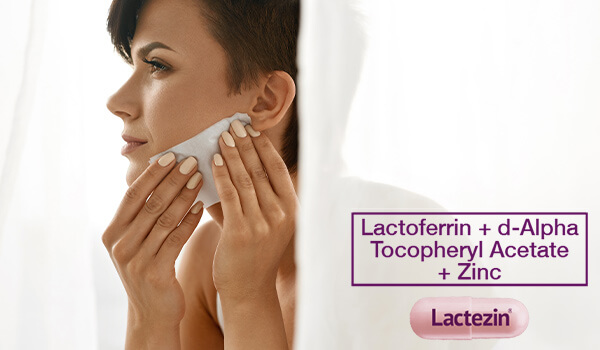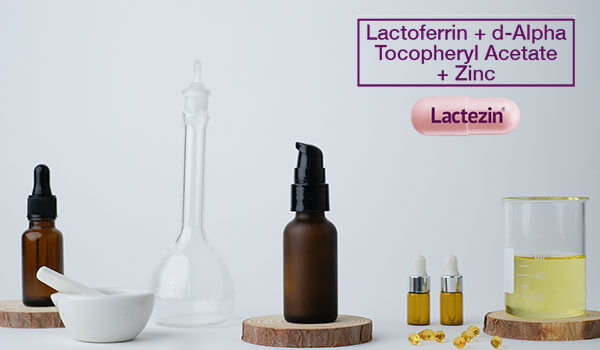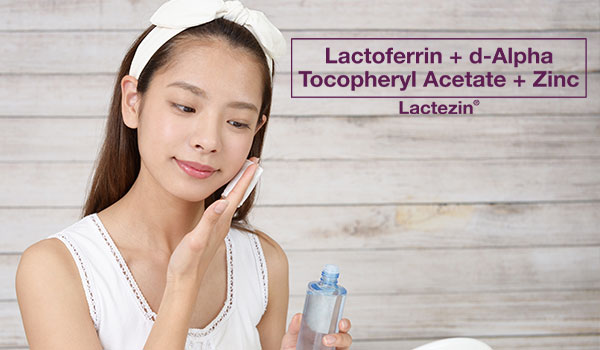7 Tips on Skincare for Sensitive Skin

Are you dealing with dry, red, and swollen skin that can peel? Or do you experience skin reactions like pustules or bumps? You may be struggling with sensitive skin symptoms. Sensitive skin is an issue that around 60% to 70% of women and 50% to 60% of men deal with worldwide, no matter where they’re located in the world.
Having sensitive skin can be quite a stressful experience, but you can address this issue with some help from the right skincare. If you have sensitive skin, stay tuned to learn what causes this issue in the first place, and know the ideal ingredients and products to use.
Why Do People Get Sensitive Skin?
The term “sensitive skin” isn’t actually a skin type as many people would believe. It refers to skin that’s more likely to experience inflammation, or “unpleasant sensory responses to stimuli.” However, there are many factors why you can struggle with sensitive skin.
Conditions like contact dermatitis, rosacea, eczema or atopic dermatitis, or photodermatoses can irritate your skin and trigger its immune system. As a result, you can experience sensitive skin, alongside many other skin issues.
In some instances, sunlight, heavy winds, and very cold or hot temperatures can dry out your skin and make it more sensitive. Moreover, if your skin is already too dry or injured, this means that it can no longer defend your nerve endings and result in skin reactions. Lastly, factors like genetics, age, gender, and race may play a role in the development of sensitive skin.
What’s the Ideal Skincare for Sensitive Skin?
Using the right skincare products is undeniably one of the most effective ways to combat sensitive skin. Here are some skincare tips you should remember if you have sensitive skin:
- Undergo patch tests: If you’re planning to use a new product, dab a small amount of the product first on your arm or behind the knee and see if your skin reacts to it. If there are no reactions, you can use it, but should there be, exercise caution and refrain from using it.
- Be mindful of the products you choose: Some of the best products for sensitive skin are non-comedogenic, fragrance-, and oil-free products with very few ingredients. Choosing products with a short ingredients list may contain less triggers or allergens. Plus, you can spot right away any substance that may potentially lead to sensitive skin.
- Look for skincare products with these ingredients: If you plan on buying skincare products for sensitive skin, check if they have these substances that can improve your complexion: ceramides, CoQ10, lactic acid or PHA, green tea extract, centella asiatica (otherwise known as cica), niacinamide, or caffeine.
- Know which skincare ingredients to avoid: Spot any of these ingredients on a skincare product? Exercise caution as these substances can cause problems if you have sensitive skin: retinols, salicylic acid, coconut oil, hyaluronic acid, benzoyl peroxide, alpha hydroxy acids (AHAs), and hydroquinone.
- Be careful when using exfoliants and masks: As much as possible, refrain from using clay face masks and face scrubs. These can reduce some of the natural oils in your skin, further damage your skin barrier, and make it more sensitive. If you want to use an exfoliant, make sure to do so for one to two times a week, and in very low amounts.
- Cleanse and wash your face at least once a day: Use a facial cleanser formulated specifically for sensitive skin and wash your face only once a day. Resist the urge to overwash or over-exfoliate.
- Use sunscreen every day to protect the skin: No matter what your skin type is, adding a sunscreen to your skincare routine is important in reducing your risk for premature skin aging and diseases like skin cancer. If you have sensitive skin, look for products that include zinc oxide or titanium dioxide, both ingredients that may be less irritating on your skin.
Address Sensitive Skin With the Ideal Nutrients
People with sensitive skin are more likely to have pimples and experience skin damage. When these issues appear, think of it as your skin crying for help, and try to resolve these right away.
Let the pimple expert help Lactoferrin + d-Alpha Tocopheryl Acetate + Zinc (Lactezin) you out today. When taken twice a day for two weeks together with proper diet and exercise, this anti-acne drug
Lactoferrin + d-Alpha Tocopheryl Acetate + Zinc (Lactezin) contains an iron-binding protein called lactoferrin that works as anti-inflammatory and antibacterial, while helping repair damaged skin cells, and lower sebum production and inflammation.
It also has vitamin E that’s known to help prevent skin dryness and maintain ideal skin moisture. This vitamin E can also help fight free radical damage and UV rays, both of which may cause harm to the skin.
Lastly, you can count on zinc, an antioxidant mineral that can help improve your skin’s overall appearance. At the same time, zinc also aids in promoting wound healing, damaged tissue repair, ideal immune system health, and managing oil production.
Let Lactoferrin + d-Alpha Tocopheryl Acetate + Zinc (Lactezin) help you address sensitive skin today. For more knowledge on what causes this issue and valuable skincare tips to try, head over to this website. Lactoferrin + d-Alpha Tocopheryl Acetate + Zinc (Lactezin) is available in all leading drugstores nationwide and on online platforms like Lazada and Shopee.
If symptoms persist, consult your doctor.
ASC Ref. No. U0151P072425L
SOURCES:
https://www.healthline.com/health/skin-disorders/sensitive-skin
https://www.verywellhealth.com/what-is-sensitive-skin-5085561
https://pubmed.ncbi.nlm.nih.gov/31157225/
https://www.medicalnewstoday.com/articles/sensitive-skin#causes
https://www.webmd.com/skin-problems-and-treatments/features/sensitive-skin-products
https://www.webmd.com/beauty/sensitive-skin-20-questions#1
https://www.glamour.com/story/skin-care-for-sensitive-skin
https://dermcollective.com/best-skincare-for-sensitive-skin/
https://www.frontiersin.org/articles/10.3389/fmed.2019.00098/full
https://www.mayoclinic.org/diseases-conditions/contact-dermatitis/symptoms-causes/syc-20352742
https://www.byrdie.com/skincare-cocktailing-4683971
https://www.skincancer.org/skin-cancer-prevention/sun-protection/sunscreen/
https://www.everydayhealth.com/skin-beauty/sensitive-skin-common-beauty-mistakes-to-avoid/


